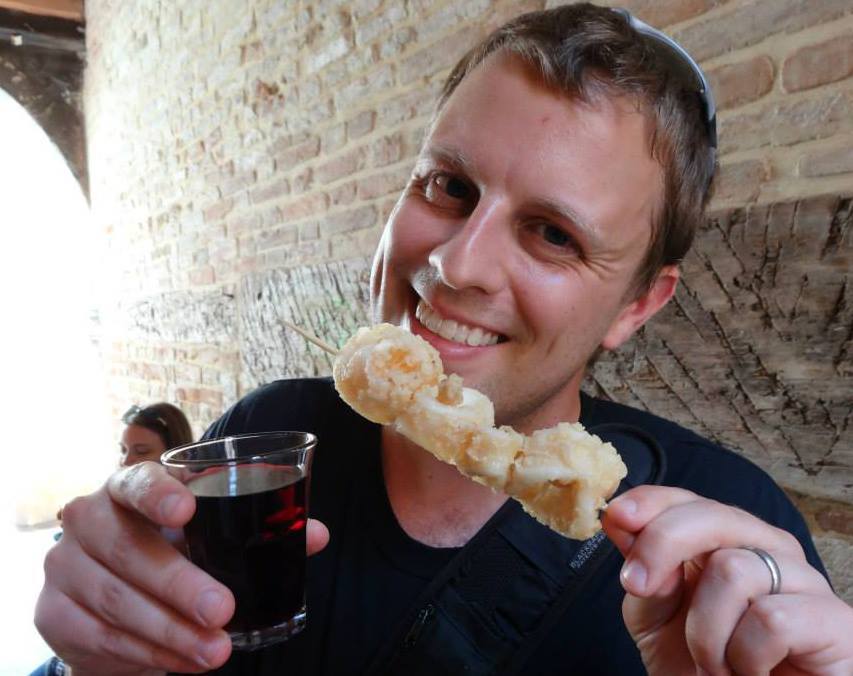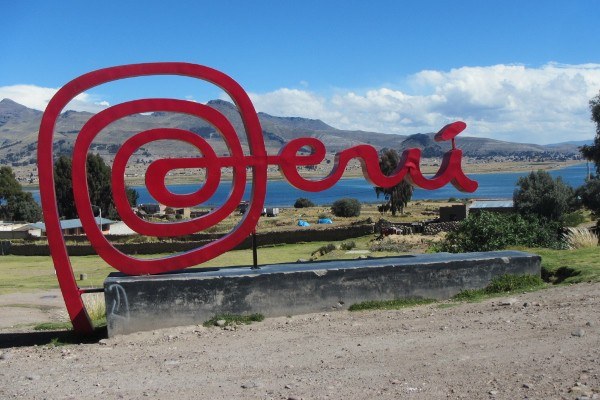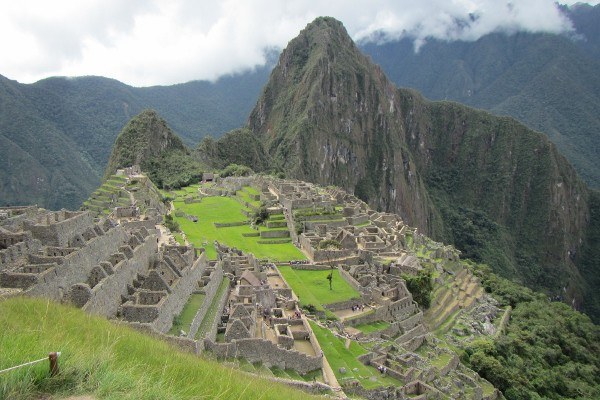Published by Jeremy. Last Updated on March 24, 2022.
Disclaimers: Our site uses demographic data, email opt-ins, display advertising, and affiliate links. Please check out our Terms and Conditions for more information. Listed prices and attraction details may have changed since our visit and initial publication.
Prior to having our backpack stolen in Peru, we thought the country would be one of the more tourist friendly and safest in the region.
This opinion came to be because, as travelers, we're constantly bombarded with the fact that so many destinations around the world are considered “unsafe.” Nearby countries like Bolivia, Ecuador, Venezuela, and Colombia all have this connotation blasted regularly, and not a day goes by where you hear warnings to travelers in the region. Ask any random person why they wouldn't want to visit, and odds are good the first thing they're going to say is “it isn't safe” regardless of if they know why or not.
Peru, on the other hand, is relatively quiet in this respect and seemingly gives the perception as being a destination safe for all visitors. With ad campaigns blasting left and right, the tourist board and other agencies do a very good job at making Peru the must visit destination in South America. Where so much negativity comes out from other nearby countries, Peru seems to be that shining beacon calling visitors from far away to enjoy a safe and wonderful holiday in an otherwise lesser-traveled region of the world.
Sadly, this projection is simply not true.
Peru is no better than the rest in terms of safety for both locals and visitors alike, and this disconnect is very troubling to us.
A Consciousness to the Rich?
The main problem is that the vast majority of travelers to Peru come in solely to take a Machu Picchu tour- admittedly one of the most beautiful archaeological parks we've ever seen. If you limit your travels only to visiting this destination, and make all of your long-distance travels by air, you will certainly fall into the pattern of thinking that Peru is an incredibly safe country.
In Cusco, for example, there are so many upscale hotels, restaurants, and neighborhoods that you cannot walk down a city block without getting caught on a handful of CCTV cameras that are no doubt being manned by a real person 24/7. Cops patrol all the time, English speaking workers are plentiful, and overall you would think you are well protected other than the taxi drivers trying to rip you off (successfully too, I might add).
Go to any other city in Peru, especially to the public bus stations, and you'll see the complete opposite side of the spectrum.
Book Your Trip Today
Flights | Hotels | Apartments | Rental Car | Cruises | Day Tours
There is hardly any security to be found.
It seems a bid odd to us that one city can be such an outlier in modern security, yet every other one we visited is virtually devoid of anything remotely comparable.
But it doesn't take long after arriving to understand why Cusco gets the special treatment. Most of the visitors who travel to Cusco are only traveling to Cusco. These travelers are affluent, likely making their first (and probably only) trip to South America, and are just staying long enough to visit Machu Picchu and leave again. It sounds crazy, but if you have visited Machu Picchu before you likely saw this for yourself.
That backpacker who actually wants to see Peru outside of Machu Picchu? Well, it is painfully clear that you're on your own.
Bus Station Thefts, Overnight Hijackings, and More, All in Peru!
Well, now that we've got the feel-good aspect of this post out of the way in telling you how sheltered and protected you'll be in Cusco, it is time to talk about the rest of the country. One you've probably never heard of before.
If this sounds shocking to you, welcome to our world! Until our backpack was stolen in Puno we had never even heard of this as an issue in Peru. It is widely publicized in Bolivia, Ecuador, Colombia, and just about every other country in the north, but not so much in Peru.
But let's tell you what all we saw or heard about while in Peru, shall we?
- Four bags stolen within an hour at Puno's bus station, half from locals. No cops patrolling until after the thefts and no CCTV evidence available.
- Five travelers with stolen passports at the US Embassy in Lima, all from bus stations.
- Two more travelers with stolen passports at the Peruvian Immigration Office, also from bus stations.
- Multiple contacts on social media from people who had their bags stolen, in, you guessed it, Peruvian bus stations!
- One story about a hijacking on Cruz del Sur night bus (the top-rated company in Peru) where bags were stolen, guns were waved, and women were touched inappropriately to get valuables “hidden” in their underwear.
With the exception to the last story, which is the most unfortunate on the list and sadly a regular occurrence in the region, without seeking it out you'll never hear anything about the safety of bus stations in Peru. You'll hear about it in every other country happening quite frequently, but not Peru, and it is pretty obvious why that is.
As one of the most visited destinations in the region, if news got out to affluent visitors that public transit in the country is not safe, the allure of visiting would go down significantly. It would be game over for Peru's tourism if it started to get the reputation its neighbors like Colombia and Bolivia have, and unfortunately it is one that it absolutely deserves.
It is because of this that we are still so pissed off about it more than a year later.
Peru Has A Long, Long Way to Go
In the end I'll say it one more time:
Peru, quit trying to be something you're not.
If you want to play tourism in the big leagues you cannot allow this stream of theft and armed robberies to occur, even if it doesn't happen to the affluent travelers who come just to visit Machu Picchu. It is not like it isn't predictable. We just outlined over 10 cases of bag snatches in bus stations all executed with a similar style, and the mobilized bus hijackings are completely unacceptable.
You know which groups do this, you know how they do it, and so far it seems like you are turning a blind eye to what is going on.
But, considering the behavior of the cops we met in Puno while filing our police report and how they were more interested in getting us to leave than actually receive a report, perhaps there is a reason why you are turning a blind eye to it altogether. I suspect we'll never know on that one.
A Bit of a Disclaimer
I am not writing this post to discourage anyone from visiting Peru. Although we were angry most of the time during our visit, I would be going against my better judgment in saying there aren't a lot of cool things to see- both at Machu Picchu and throughout the country. Will we go back? Most likely. Should you go? Of course. Just be sure to maintain extra vigilance during your travels as Peru is not the safe country it makes itself out to be, and is instead no different than its neighbors you hear about much more frequently.
If we're going to be honest about safety everywhere else in South America, it is time Peru is treated like everyone else.
About Jeremy

About the Author: Jeremy is a full-time travel writer based in Pittsburgh and primary author of this site. He has been to 70+ countries on five continents and seeks out new food, adventure activities, and off-the-beaten-path experiences wherever he travels.




Peru has also tourist police to specially take care of tourists, and an app “Tourist Police Perú” can always ask for them. But be careful and keep your valuables always in sight and within reach.
I am peruvian and I feel very sad to hear all of this and apologize for this happening to you. Safety is one of the major topics that people are demanding in our country from our politicians. In the country side (not big cities) is safer but always be cautious.
About the Lima airport window smashing events: Take a Taxi Green. We have a good friend who is a driver for them and he had to get his car outfitted with non-smash glass or whatever it’s called–some sort of safety glass that all Taxi Green drivers must have to work for the company. I’m from California and I travel to Peru once a year or so. No problems for a long time…but 20 years ago, witnessed a theft in Lima. I took a bus to Huancayo and trufi to Huancavelica this spring and nothing happened….the bus highjackings are terrifying though…. Peru HOP is supposed to have better radio communication than other companies and be safer, but I haven’t tried it. I fly when I can!!
I’ve been living in Lima for 10 months now. Yes, this is Peru : Big money for PromPeru and MINCETUR, who work very hard (and well, let’s admit!) on promoting Peru to foreign tourists. But everytime I land at Lima’s airport and take a taxi home with all my belongings (often worth +5000 USD – mainly electronics) I put myself and my stuff at risk for about 1h. I know many people who got their cars windows smashed just for an iPhone. Knowing both places quite well, Cusco feels Switzerland compared to Lima. And I’ve heard north of Peru is even worse.… Nevertheless, Peru is a beautiful country that I recommend everyone to visit… just remain aware of your surroundings and avoid travelling at night with your MacBook and your iPhone!
Great article Jeremy – rant or not – it’s all true. We’re in Cusco right now and I thought I was going to love my month here. Sure it’s scenic and has wonderful history, but it is all so dressed up and pretty for the ‘tourist’ – I find it all a bit fake and as for the ‘Boleto Turistico’ (which is pretty much mandatory for visits to the sites) – well that just makes me cross, especially as we are here for a month and it only lasts for 10 days. To boot currently there is a 48 hour strike on – apparently over the government giving private and public enterprise sole access to manage the archaeological sites. This means the city is at a standstill, there’s no transport – visitors can do nothing and go nowhere and most will have to alter their plans and flights. This happened to us in 2011 also and when I checked seems it’s a regular occurrence here in Cusco. Yes – Peru and Cusco – get real if you want to play in the tourism stakes. We’ve travelled from the Ecuador border the length of the country by bus – whilst we’ve had no security issues we have seen the need to be extremely vigilant at the bus stations. We’ve also travelled by bus (local most of the time) safely in Colombia, Ecuador and Bolivia and these appear no more dangerous to us than Peru. In fact with all these demonstrations and road blockages, right now Peru feels much less safe than any of those other countries. Cheers Jo and Des
Oh wow, I’m sorry to hear that you’re having so much trouble in Cusco right now! I heard about the strikes as our team member Rylei is there right now on the Inca Trail trek. It did not sound very pleasant as her tour was abruptly changed too. It makes me sad to hear about all of this and I hope your travels pick up for the better soon!
You get your info from tourist. Tourist areas are heavily policed. While the Peruvian population has the #1 complaint: lack of security and delinquency . My wife is from Chiclayo and we own a beach home. We are among everyday Peruvians, robbery, pick pockets, theft is a way of life.
You really want the skinny on Peru,
Read elcommercio.pe rpp.com.pe and correoperu.com
If you read these dailys you get true insight into Peru. Most tourist and expats live and travel in safe zones. Backpacking is fairly risky.
Thanks for the comments and heads up! Such a sad thing that it is hidden from travelers and foreigners unlike other countries even though it is such a problem.